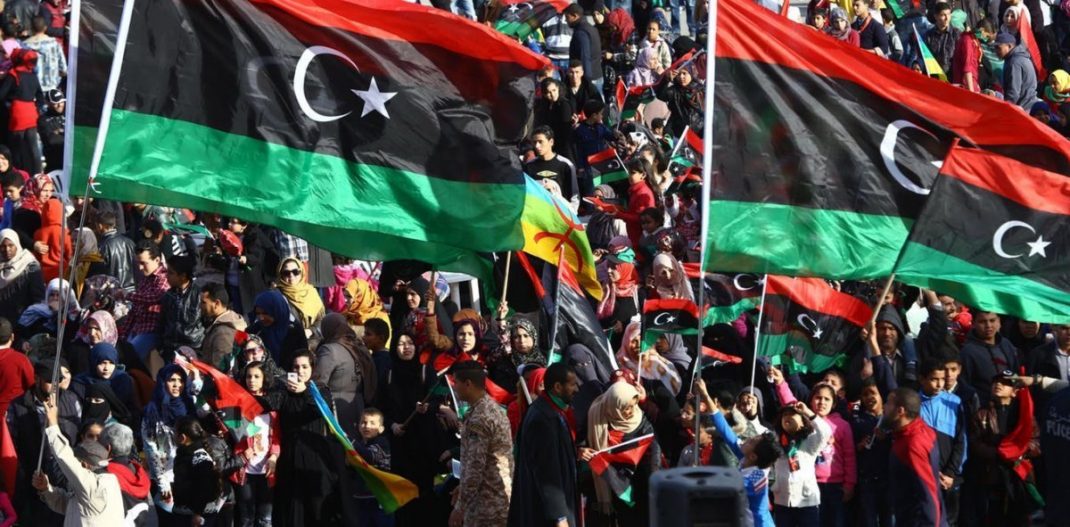By Kamal Hudhaifa
Libya is large enough for all components of the society, provided we arm ourselves with good intentions and good faith in the other.
Libya is facing enormous challenges in its transition phase, especially now when the state apparatus has failed to rein in the various lawless armed militias. The state is no longer able to enforce the law and protect citizens as the country slips into more and more chaos.
Amid the political squabbling and hunger for power, the mere existence of Libya as a unified state is in jeopardy. As long as the military and security institutions in Libya remain disunited, there will be no chance for laying the foundations of the rule of law. The local political forces are weak and unable to start a constructive dialogue, let alone find a solution to the crisis; so they remain locked in a bitter struggle for power.
Many regional and international powers find their interests better served if Libya is in civil turmoil. The country is incapable of defending its airspace and its maritime and land borders, making it possible for organised crime, piracy and illegal migration to thrive. Pushed by unbearable economic hardships, some Libyan citizens have resorted to begging to survive while others have turned to crime. The state can no longer provide basic protection, so some citizens have taken the law into their own hands.
Years of pervasive corruption in the administrative and financial institutions have driven the country into bankruptcy. Citizens have been stripped of their possessions and rights while criminals roam undisturbed. As long as criminals and corrupt officials in Libya continue to escape the law, the cycle of violence will continue.
Jails in Libya are bursting with people detained without any probable cause. Their detention may last for years without investigation or trial. Thousands of Libyans have been displaced for no apparent reason. Discrimination is rife, making it impossible to put in practice the principle of equality before the law. Extremist thinking and behaviour have seeped deep into Libyan society.
In Libya today, widespread unemployment is pushing the youth into the arms of the militias. Those who have been in the militias for some years now are finding it difficult to adjust to civil life. The same years of political strife have almost wiped out any progress and social gains achieved by Libyan women. Thousands of Libyan children are denied their right to education because their schools have either been destroyed or closed. In short, Libya today is failing to ensure a decent living for its citizens.
Given all of the above, how can Libya reverse the downward spiral and restore the rule of law to guarantee decent living conditions for every citizen? I firmly believe that a political solution remains the best way out of the crisis in Libya. A military approach will never work. With the exception of the war on terror, a military force-based approach is incompatible with the requirements for dialogue and will definitely make the situation in Libya worse. Force always leads to failure. We must first work on creating the right conditions for a constructive dialogue between the various warring parties in Libya.
Libya is large enough for all components of the society, provided we arm ourselves with good intentions and good faith in the other. Those who would be involved in the dialogue must be worthy of taking part in the dialogue; in other words, they must be willing to exchange ideas and listen to alternative views.
This dialogue will be the starting point of the process leading to a real national consensus perhaps based on the 2015 political agreement under the auspices of the UN mission to Libya. If all parties in the conflict adopt the 32 principles of that agreement, we might soon be out of the woods.
No solution to the Libyan crisis will be possible as long as there continues to be more than one central authority.
To ease the predicament of Libyan citizens, the legislative, executive and judicial powers in Libya must go back to working together as one. There must be an end to the rampant corruption and public mismanagement. The Libyan revolution did put an end to a totalitarian regime but has been nowhere close to rebuilding a civil state. Libya’s youth, in particular, must believe in their capacity to change things for the better and must enlist in Libya’s national project rather than believe in rogue militias.
The main cause of the Libyan crisis is the political leadership in the country. The current leaders are obsessed with power and working for the common good is the last thing on their minds. One would think that the sorry fate of the previous regime would have taught them a lesson, but while revolutions change everything else, man will remain the same.
With the right person at the right spot and with unity, the Libyan people can and will overcome their current predicament. We have done it before and we can do it again. I will end with a quote by Omar Mokhtar, Libya’s emblematic martyr: “I believe in my right to liberty and in my country’s right to life. This belief is stronger than any weapon.”
***
Kamal Hudhaifa – A Libyan judge and human rights activist.
______________




